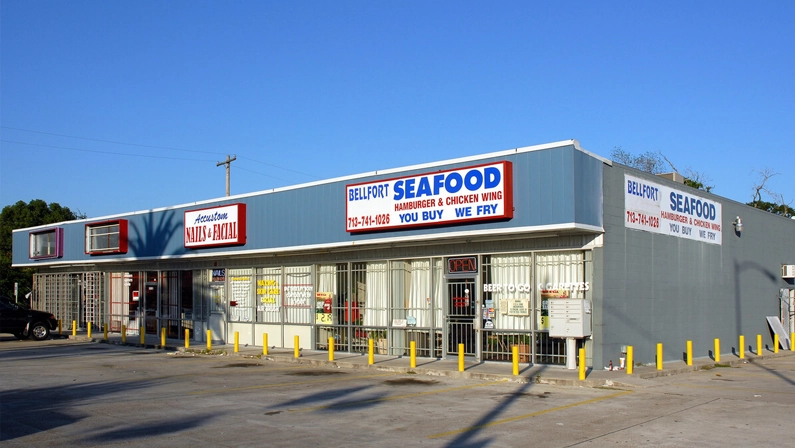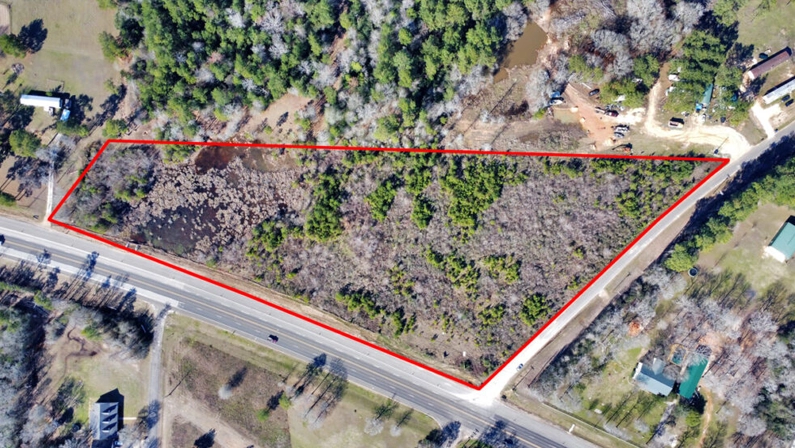Investing in commercial real estate is a significant financial decision that can offer substantial rewards. Whether you’re looking to diversify your investment portfolio or seeking a stable income source, commercial real estate can be an excellent option. However, navigating this market requires careful planning and a deep understanding of the various factors involved.
From understanding what commercial real estate is to knowing how to purchase it, this guide will walk you through everything you need to know. We will explore the benefits and risks, types of properties available, and the essential steps to take when investing in commercial real estate, with a specific focus on opportunities in Houston, TX.
What is commercial real estate?
Commercial real estate refers to properties used for business purposes rather than residential living. These properties can range from small office spaces to large industrial complexes. The main objective of commercial real estate is to generate income through leasing, renting, or selling the property.
Investing in commercial real estate offers an opportunity to diversify your portfolio and create a consistent cash flow. It’s essential to understand the different types of commercial properties available and how each can fit into your investment strategy. With help from Apex Realtors, you can invest in the best properties available.
Types of Commercial Real Estate
Commercial real estate encompasses a variety of property types, each serving a different purpose and offering unique investment opportunities.
Multi-family residential properties
These are residential buildings with multiple units, such as apartment complexes. They generate income by renting out individual units to tenants.
Office buildings
These properties are used by businesses and professionals for office space. They range from small, single-tenant buildings to large, multi-tenant skyscrapers.
Industrial properties
Industrial real estate includes warehouses, manufacturing facilities, and distribution centers. These properties are essential for businesses involved in production, storage, and logistics.
Retail space

Retail properties include shopping centers, malls, and individual storefronts. These properties are designed for businesses that sell goods and services directly to consumers.
Hospitality properties
This category includes hotels, motels, and resorts. Hospitality properties generate income through lodging services and often include additional revenue streams such as restaurants and event spaces.
Zoned land

Zoned land refers to plots designated for specific types of development, such as commercial, industrial, or residential. Investing in zoned land involves purchasing land with the intention of developing it or holding it for future appreciation.
What are the benefits of investing in commercial real estate?
Investing in commercial real estate offers several advantages, making it an attractive option for many investors:
Longer lease terms
Commercial leases tend to be longer than residential leases, often ranging from 3 to 10 years or more. These extended lease terms provide stability and predictability, ensuring a steady income stream over a longer period. Longer leases also reduce the frequency of tenant turnover, lowering the costs and efforts associated with finding new tenants.
Stable cash flow
One of the primary benefits of investing in commercial real estate is the potential for stable and consistent cash flow. Commercial properties, such as office buildings, retail spaces, and industrial facilities, typically generate higher rental income compared to residential properties.
Appreciation potential
Commercial real estate has a strong potential for appreciation over time, especially in markets experiencing economic growth and development. As demand for commercial spaces increases, property values tend to rise, allowing investors to benefit from capital gains when they sell the property.
In growing markets, such as Houston, TX, where the economy is expanding and new businesses are emerging, the appreciation potential can be significant. Investors who hold onto their properties for the long term may see substantial increases in value, enhancing their overall return on investment.
Triple net leases
Commercial properties often use triple net leases, where the tenant is responsible for most or all property expenses, including maintenance, insurance, and property taxes. This arrangement can significantly reduce the landlord’s operational costs, making the investment more passive and increasing overall profitability.
Control over investment
Compared to other forms of investment, such as stocks or bonds, commercial real estate offers a higher degree of control. Investors can actively manage and improve their properties, make decisions on leasing, renovations, and tenant selection, and directly influence the property’s performance and value.
Customization opportunities
Commercial properties, especially retail and office spaces, often require tenant improvements to suit the specific needs of the business. Landlords can negotiate these improvements as part of the lease agreement, with the tenant covering the costs. This customization not only enhances the property’s value but also increases tenant satisfaction and retention.
What are some risks of investing in commercial real estate?
While commercial real estate can be lucrative, it’s not without risks. Understanding these risks is crucial for making informed investment decisions.
The market
The commercial real estate market is subject to economic cycles. Market downturns can lead to decreased property values and rental income.
Tenants
Tenant turnover and vacancy rates can significantly impact your cash flow. It’s essential to carefully vet potential tenants and manage lease agreements effectively.
Property management
Managing commercial properties can be complex, requiring ongoing maintenance, tenant relations, and compliance with local regulations. Poor management can lead to increased costs and reduced profitability.
Financing
Securing financing for commercial properties can be challenging, with higher interest rates and stricter lending requirements compared to residential real estate.
Who can invest in commercial real estate?

Commercial real estate investment is not limited to wealthy individuals or large corporations. Several types of investors can participate in this market:
- Individual investors: Private individuals can invest in commercial real estate directly by purchasing properties or indirectly through real estate investment trusts (REITs).
- Small businesses: Business owners can purchase commercial properties to house their operations, offering stability and potential cost savings.
- Institutional investors: Large financial institutions, such as pension funds and insurance companies, often invest in commercial real estate as part of a diversified portfolio.
- Real estate syndicates: Groups of investors pool their resources to purchase larger commercial properties, sharing the risks and rewards.
What makes commercial real estate a good investment?
Commercial real estate is considered a strong investment for several reasons:
Passive income
Investors can generate steady rental income without active involvement, especially when a property management company handles day-to-day operations.
Appreciation
Over time, commercial properties often appreciate in value, providing capital gains when the property is sold.
Diversification
Adding commercial real estate to your investment portfolio helps reduce overall risk by spreading investments across different asset classes.
Inflation hedge
Commercial properties can protect against inflation, as rental rates and property values typically increase with inflation.
Tax benefits
Investors can take advantage of tax deductions, such as depreciation and mortgage interest, which can reduce taxable income.
How To Get Into Commercial Real Estate
Entering the commercial real estate market requires careful planning and strategic decisions:
1. Define your motivation.
Understand why you want to invest in commercial real estate. Are you seeking long-term growth, steady income, or a combination of both?
2. Secure financing from a lender.
Commercial real estate often requires significant capital. Secure financing through traditional lenders, private investors, or commercial mortgages.
3. Hire a team of trusted professionals
Assemble a team of professionals, including real estate agents, attorneys, and property managers, to guide you through the process.
4. Find the perfect opportunity
Research the market to find properties that align with your investment goals. Consider location, property type, and potential for growth.
5. Make an attractive offer
Once you’ve identified a property, make a competitive offer. Work with your team to negotiate favorable terms and close the deal.
Buying Commercial Property For Personal Use
Investing in commercial real estate for personal use involves purchasing a property that will house your business operations. This approach offers stability and potential cost savings, as you won’t be subject to rental increases and can build equity over time.
Buying Commercial Property For Investment Purposes
Purchasing commercial real estate purely for investment purposes focuses on generating income through leasing or reselling the property. This strategy requires careful market analysis and property management to maximize returns.
Looking to buy commercial property in Houston, TX?
Houston is a thriving market for commercial real estate, offering a range of opportunities for investors. Whether you’re looking to invest in office buildings, industrial properties, or retail space, Houston’s diverse economy and growing population make it an attractive destination for commercial real estate investments.
Ready to take the next step? Contact local real estate expert Apex Realtors today to explore your options and start your journey in commercial real estate investment.

